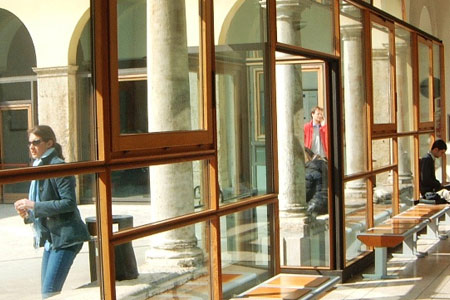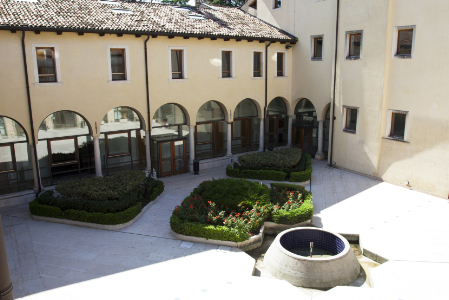The project aims to elaborate an interdepartmental research with a view to monitoring the intergated European judicial system. The research wil analyse the degree of protection of the fundamental rights afforded by the legal rules,by administrative and judicial organs, in the relevant legal systems (national and supranational). Special attention will be devoted to a comparative analysis of the Italian Costitution and of the European Charters (EU Charter of Fundamental Rights, the European Convention on Human Rights), as well as to the interpretation and application of such rights by the national and supranational courts (the European Court of Justice, the European Court of Human Rights).
Having been approved the European Charter of Fundamental Rights, it becomes necessary a new study on the right to a fair trial. Article 47 of the Charter not only gives everyone, whose rights and freedom guaranteed by the law of the Union are violated, the right to an effective remedy before a tribunal; it also states the minimum conditions of this guarantee. According to Article 47 (2), everyone is entitled to a fair and public hearing within a reasonable time by an indipendent and impartial tribunal previously established by law. This provision resembles the guarantees embodied in Article 6 of the Rome Convention for the Protection of Human Rights and Fundamental Freedoms, and recently embodied in the new Article 111 of the Italian Costitution as well. It becomes also unavoidable, if we want to fully understand the meaning of these guarantees, to study the case-law of the Strasbourg European Court of Human Rights in matter of Article 6 ECHR, since Article 52 (3) of the Charter says that, insofar as it contains rights which correspond to rights guaranteed by the ECHR, the meaning and scope of those rights shall be the same as those laid down by the said Convention and – it may be presumed – by the case-law developed by the Court which had the task to enforce and judicial protect the said rights.
Within this perspective, we will examine the importance which these guarantees – as fundamental principles of the European Legal Order – will have in relation to the legal acts which the Community may adopt in the frame of the judicial cooperation in civil matters. Therefore we will analyse the legislative instruments passed or drafted in this area, and in particular the recent EU Council Regulations (on jurisdiction and recognition of foreign judgments in civil and commercial matters, in matrimonial matters as well as in matters of parental responsibility for children of both spouses, on insolvency proceedings, and further on service of documents and taking of evidence abroad), with the aim of determine the mandatory rules which will flow by the recognition of these fundamental procedural rights: especially in view of the right to an effective defense, of the right to an impartial tribunal, of the access to justice.
Very important, especially in the context of access to justice, will be the draft of a so-called “European enforceable judgment” and the draft of a uniform proceeding for the recovery of commercial and small or non disputed claims (upon the example of the “decreto ingiuntivo” or “Mahnverfahren” proceedings), on the background of the next draft of a Directive or Regulation on the Approximation of Judiciary Law in the European Union.
The starting points, the legal foundations ant the methodological premises of this research are to be pointed out, in a comparative perspective, by the principles of the European systems of recognition and enforcement of foreign judgments and by the recent EU Council Regulations to improve the judicial cooperation in civil matters. In an analytical perspective, the aim of this research is to determine the meaning of the procedural fundamental guarantees – embodied in Article 6 ECHR – in relation to the structure of the proceedings, the appeals and the arbitration when it is matter of enforcing a “foreign product” whose recognition is nearly mandatory by the “importing” State.







